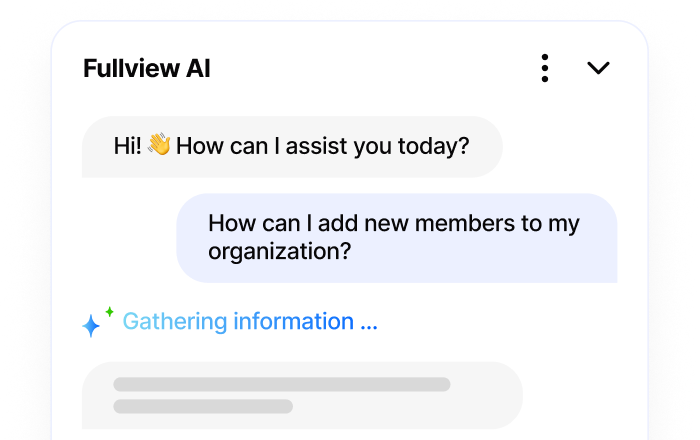Everyone in business knows that exemplary customer service can be a game-changer. But what does genuinely effective customer service look like?
This article highlights the three most crucial customer service qualities, known as the '3 Ps'. These target the optimal ways to provide exceptional customer service. American author and businessman Shep Hyken says, "The magic of customer service is not just about meeting but exceeding customer expectations."
By honing these three qualities, businesses can do just that – not simply meet but surpass their client's expectations, fostering loyalty and enhancing their bottom line. Let's dive in.
Delivering Outstanding Customer Service: The Three Pillars
The three pillars are known in the customer service industry as the critical aspects to achieve an exceptional customer experience.
1. People-First Attitude: Putting Customers at the Center
Exceptional customer service requires a people-first attitude. By prioritizing customers' needs, understanding their preferences, and tailoring interactions accordingly, businesses can create a personalized and memorable customer experience.
2. Technical and Critical Problem-Solving Skills: Navigating the Digital Landscape
In today's digital world, technical proficiency is essential. With the ability to troubleshoot issues, leverage technology, and make informed decisions, customer service representatives can effectively address challenges and provide efficient solutions.
3. Personal and Professional Skills: Building Trust and Relationships
The blend of personal and professional skills sets exceptional customer service representatives apart. Empathy, active listening, resilience, and a focus on continuous improvement create meaningful interactions that solve problems, build trust, and forge lasting relationships.
By embodying these three pillars, customer service professionals can exceed customer expectations, foster loyalty, and drive business growth. Through nurturing a people-first approach, mastering technical and problem-solving skills, and continuously honing personal and professional abilities, exceptional customer service becomes a reality.
People-First Attitude
A "people-first attitude" in customer service reflects prioritizing the customer's needs, feelings, and satisfaction above all else in your approach. It underscores the importance of empathizing with customers, understanding their problems, and working tirelessly to address them.
Never overstate the effect embodying a people-first attitude in customer service can have, as it is critically important. It's the cornerstone of any successful customer service strategy, leading to higher customer satisfaction levels, increased customer loyalty, and improved business reputation.
Critical examples of a people-first attitude include:
- Actively listening to customers and empathizing with their situation
- Taking the time to explain complex procedures or solutions in a simple, understandable manner
- Resolving all customer problems by taking direct ownership of them and following up until they are complete
For customer service professionals to personally develop this skill, they should focus on these critical aspects:
- Strive to understand the customer's perspective
- Practice active listening
- Develop empathy and patience
- Continually seek feedback for improvement
Companies can help their teams develop these skills by providing comprehensive training and workshops focused on empathy, active listening, and communication.
Technology can significantly amplify a people-first approach. When support agents can see exactly what a customer is experiencing through their screen and guide them visually through solutions, it transforms the interaction from frustrating to helpful. Rather than lengthy explanations over chat or phone, agents can show customers exactly where to click or what steps to take, making the experience more personal and effective.
Technical and Critical Solving
Technical and critical problem-solving in customer service is about diagnosing problems and finding practical solutions quickly and efficiently.
This skill is crucial in customer service and directly impacts customer satisfaction, trust, and loyalty. A proficient technical problem solver can break down complex issues, analyze the components, and systematically solve the problem.
Some standard techniques that support professionals can use to develop their technical and critical solving skills include:
- The 5 Whys: This technique involves asking "why" five times to reach the root of a problem. It encourages deeper thinking and helps identify the underlying cause.
- Decision matrix: This tool evaluates the pros and cons of various solutions. It helps select the most effective solution in a systematic and unbiased manner.
- Mind mapping: This involves visually organizing information to understand complex problems better. It can help one see the bigger picture and identify solutions that might otherwise take time to become apparent.
Customer service professionals can personally develop these skills through continuous learning and practice. They can expose themselves to different situations, consistently practice problem-solving, and reflect on their successes and failures.
Additionally, companies can facilitate their teams' development of these skills by providing training programs that focus on problem-solving techniques. Resources such as manuals, cheat sheets, or guidelines can also be beneficial.
Companies can also invest in technology that aids problem-solving, such as AI, machine learning, or knowledge management systems.
Regularly gathering and sharing customer feedback can provide real-world examples and learning opportunities, helping customer support professionals hone their technical and critical problem-solving skills.
Personal and Professional Skills in Customer Support
A blend of personal and professional skills is key to exceptional service and customer experiences, with three main skills holding top priority:
- People Skills: Customer service agents are your company's front line - they interact directly with your customers. Strong people skills like listening, communicating effectively, and empathizing with customers significantly affect CSAT levels. Agents with good people skills can relate to customers on a personal level and build strong relationships, leading to increased customer satisfaction and loyalty. When hiring for customer support, look for candidates with strong people skills. These individuals can effectively communicate and connect with customers, creating positive interactions and building trust. A candidate with this quality may be able to understand and address customer needs, leading to better customer experiences and avoiding potential problems such as miscommunication or unresolved issues.
- Professionalism: Professionalism is a marker of dedication and respect. Agents who exhibit professionalism are reliable, responsible, and positive, even in challenging situations. They adhere to the company's code of ethics, respect customers' time and feedback, and represent the company in a way that instills trust and confidence. They understand the importance of representing the company in a positive light and maintaining a professional demeanor even in challenging situations. A candidate who displays unprofessional behavior without professionalism can damage the company's reputation and customer relationships.
- Patience: Dealing with frustrated customers can be taxing, but patience is vital for customer service agents. With patience, agents can calmly handle customer complaints and guide them through troubleshooting processes or explanations with empathy and understanding. Patience helps diffuse tense situations and ensures each customer feels heard and valued.
Remember, these '3 Ps' are integral to a high-quality customer service agent. You can build a team that delivers exceptional customer service by prioritizing these qualities in your hiring process.
Conclusion
To excel in customer support roles, candidates must possess people skills, professionalism, and patience. Strong people skills build trust and address customer needs, while professionalism maintains the company's reputation. Patience is crucial in handling challenging customer concerns. Prioritizing these traits in hiring will enhance customer service, loyalty, and business success.
Ready to see how leading SaaS companies are scaling exceptional customer service? Book a demo to discover how AI-powered visual guidance can help your team deliver the 3 Ps more effectively.
Frequently asked questions
How do I actually train my existing team on these 3 Ps?
Start with role-playing exercises and real customer scenario training. Create a 30-60-90 day development plan focusing on one P at a time. Use call recordings to identify coaching opportunities, and implement peer mentoring programs. Most teams see improvement within 4-6 weeks with consistent practice and feedback.
What if I'm hiring entry-level agents - can these skills be taught or do I need experienced people?
These skills are absolutely teachable, especially to motivated entry-level candidates. Look for natural empathy and communication skills during interviews, then invest in structured training programs. Many successful support teams prefer training eager beginners over retraining experienced agents with bad habits.
How do I measure if my team is actually improving on the 3 Ps?
Track specific metrics for each P: CSAT and customer effort scores for people-first attitude, first-call resolution and time-to-resolution for problem-solving, and escalation rates plus customer feedback sentiment for professionalism. Create scoring rubrics for call quality assessments.
What's the biggest challenge teams face when implementing these practices?
Time pressure is the #1 obstacle. Agents feel rushed and skip the empathy/patience steps to hit ticket quotas. The solution is adjusting KPIs to reward quality over speed - focus on resolution rates and customer satisfaction rather than just call volume. Some teams find that showing customers solutions visually instead of lengthy explanations actually saves time while maintaining the personal touch.
How do I get buy-in from leadership for investing in soft skills training?
Frame it in business terms: companies with strong customer service see 4-8% higher revenue growth. Calculate the cost of losing customers vs. the investment in training. Present a pilot program with measurable results rather than asking for a large upfront commitment.
What tools and resources do I actually need to support these practices?
Essential tools include: quality assurance software for call monitoring, customer feedback platforms, knowledge base systems, and CRM integration. Budget for ongoing training programs and consider customer service coaching platforms that provide structured development paths. Visual guidance tools can also help agents demonstrate solutions rather than just describing them, making interactions more effective and personal.
How do I maintain these standards during peak periods or when we're understaffed?
Create escalation protocols that maintain the 3 Ps even when rushed. Develop templates and scripts that embody these principles. Cross-train team members and consider temporary staffing solutions rather than compromising service quality.
What industries or company types struggle most with implementing these practices?
High-volume, transactional businesses often struggle because they're optimized for speed over relationship-building. Technical/B2B companies sometimes undervalue the people-first approach. The key is adapting the principles to your specific context rather than abandoning them.
How long does it realistically take to see ROI from focusing on these customer service fundamentals?
Most companies see initial improvements in customer satisfaction within 30-60 days. Measurable business impact (reduced churn, increased upsells) typically appears within 90-120 days. The investment pays for itself through reduced customer acquisition costs and higher lifetime value.


.png)





.webp)
